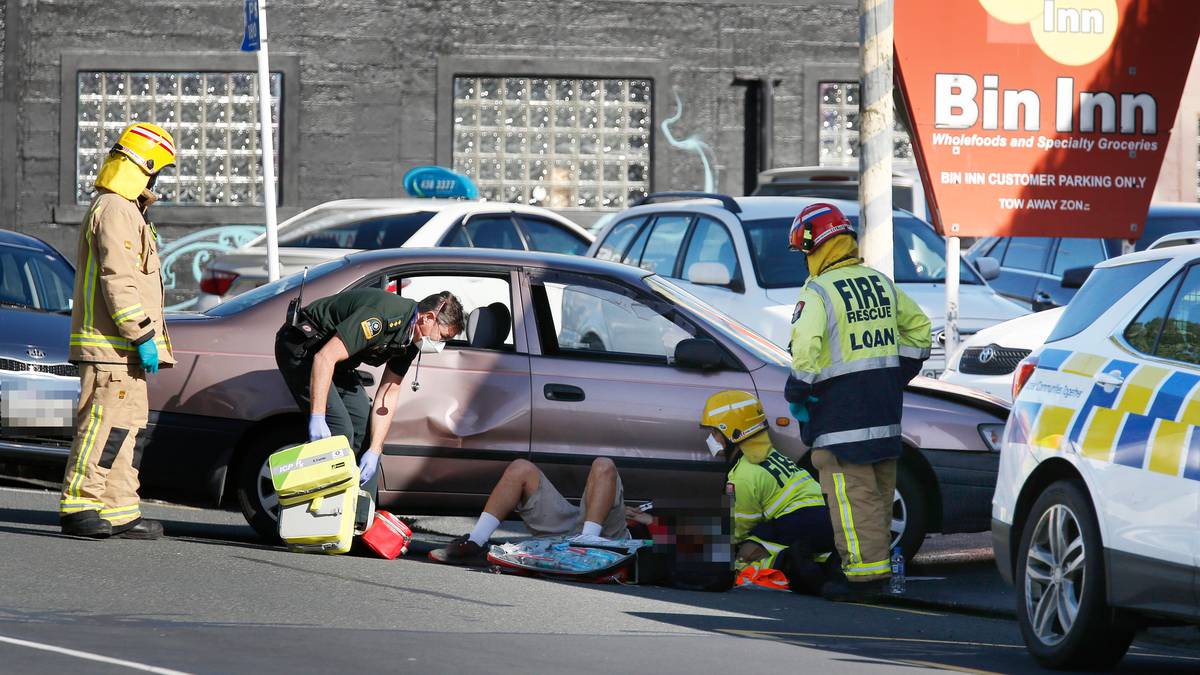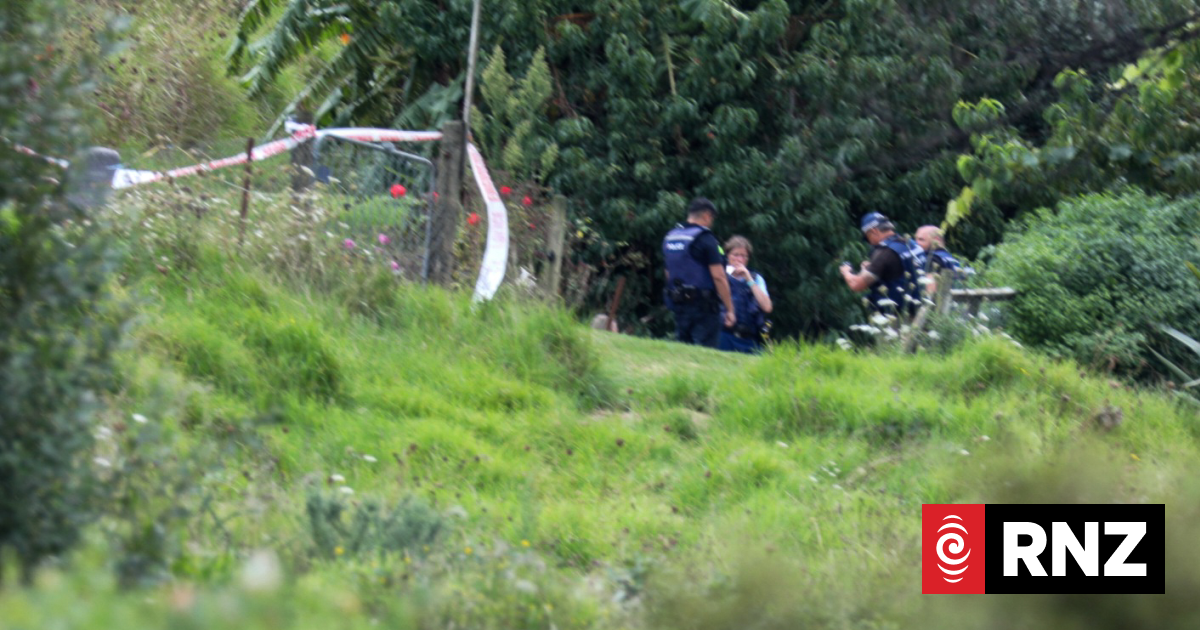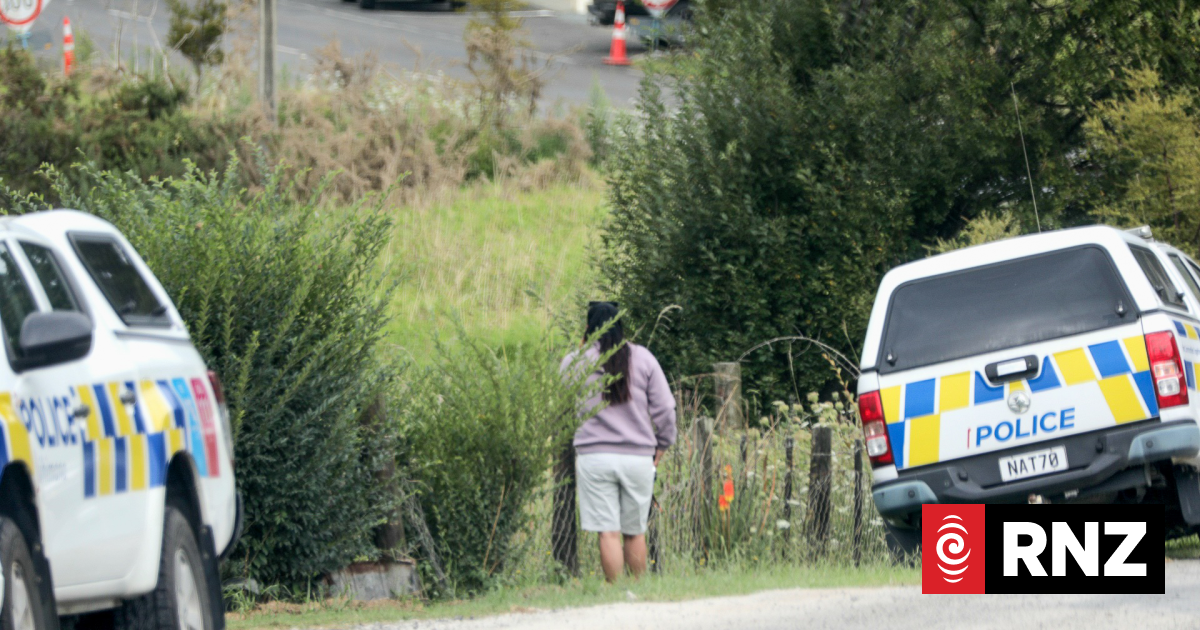A car was driven into pedestrians during a brawl that left two injured on Walton St, Whangārei. Photo / NZME
Northland’s business lobby has called for special ratepayer funding to pay for a show of force in central Whangārei, saying it was seeing scenes of “delinquent behaviour and criminal activity that is destroying our wonderful
city centre”.
NorthChamber pushed for the funding in a letter to Whangārei District Council sent before the Saturday morning brawl in Walton St in the central city during which a car was driven into pedestrians, injuring two people.
NorthChamber president Tim Robinson said the crime was at the top of business owners’ minds and the brawl was the latest example.
“It only reinforces the urgency we need to get the right agencies and security involved to get the city safe again,” Robinson said of the fight.
Robinson sent a letter to the council on behalf of the chamber and businesses on July 4, urgently requesting a three-month funding boost to “increase a visual presence of authority”.
NorthChamber was campaigning to raise $50,000 from businesses to increase funding to City Safe but also engage Māori Wardens and Te Ora Hau.
“We are asking that WDC match that with $2 for every dollar from business (ie $100,000) … to give a war-chest of $150,000 to achieve some short-term relief and restore public confidence that the CBD is a safe and vibrant precinct,” the letter from Robinson said.
WDC confirmed it received and acknowledged the letter. Mayor Sheryl Mai said council was organising a meeting for later this week with a range of agencies to come up with an action plan.
Mai said she agreed there was an issue with crime in the centre – particularly involving youth. “We can’t gloss over it.”
Two men involved in the brawl appeared in court with Judge Gene Tomlinson telling one incidents of the sort made “Whangārei look bad in front of everyone” and “makes the place look lawless”.
The consequence, he said, was “no one wants to visit, then the retailers lose money because we don’t have the tourists spending their money”.
Bin Inn assistant manager Shayla Thomas witnessed the brawl while working. While Bin Inn wasn’t necessarily seeing more violence or theft, Thomas said she worried about the safety of the customers. “Something probably needs to change, but you don’t know what.”
/cloudfront-ap-southeast-2.images.arcpublishing.com/nzme/X6LPTXBCNSAITUGGLQ45IVI3TE.jpg)
An eyewitness who worked close by said he moved quickly to lock doors and keep trouble out in response to the fight that came out of nowhere. “I kind of worry about my safety with all the crime that’s been happening recently.”
The pitch to council for money for security followed a meeting with about 40 central city businesses on June 30 organised by NorthChamber.
“There was definitely a consensus of business owners and managers feeling intimidated, some having been physically threatened,” Robinson said.
Robinson said business owners spoke of rostering on more staff after 5pm each day and having staff walk each other to cars.
“There’s a general sort of sense that (Whangarei CBD) is not a great place to be after 3 o’clock, which is not flash for business.”
/cloudfront-ap-southeast-2.images.arcpublishing.com/nzme/VRW3BTFTDXSZPHCQEIUGVWXKSQ.jpg)
Mai, Whangarei District Council staff, Northland police and CitySafe were also in attendance.
Robinson said the police highlighted that not all incidents were being reported to authorities. It meant the official record of crime in the city was lower than what those at the meeting described.
/cloudfront-ap-southeast-2.images.arcpublishing.com/nzme/BJFE7PQURJ24BJKTZKQSGZQC2Y.jpg)
Whangārei District Councillor Nicholas Connop said systemic issues were getting in the way of police and council addressing youth crime “adequately” nationwide.
“With the legislation from central government to what the police and council are actually able to do, there is kind of a mismatch where it doesn’t work and where it’s not as strong as necessary.”
/cloudfront-ap-southeast-2.images.arcpublishing.com/nzme/VZZTX5S7WIULI6XBV2QHJ7OF3A.jpg)
Connop acknowledged that “historic failures” have put groups of people in desperate situations where they have no money, no accommodation and are ostracised.
“It’s one of those issues where it’s difficult to address because it’s really a full systemic and societal issue.”
“You can go and slam the book down … but it’s not going to solve the issue, it’s just going to put a plaster on it until another one pops up.”
Whangārei MP Emily Henderson said there had been spikes in some crime recently but that youth crime was going down, as shown by the Youth Justice Indicators Summary Report.
“One of the things that people often struggle with is that youth crime in this country is actually falling very steadily and has been for quite a long time.
/cloudfront-ap-southeast-2.images.arcpublishing.com/nzme/UOZDMJN7MCP2LJCHLUELINV3AI.jpg)
“That’s because our youth justice system is actually very good. I’m not saying it’s perfect, Nothing’s ever perfect.”
Henderson said sending youth to prison might be an immediate solution to stopping ram raids, but it wasn’t a good long-term solution for Northland.
“Prison is the university of criminals. It’s a multi-systemic problem, it’s got multiple layers to it.”
Bream Bay ward councillor Ken Couper said it was up to council and chamber of commerce to bring in agencies and local organisations to deal with the issues.
“The climate needs to be welcoming those agencies to come in. They need to know that we want them and we’re not going to write these kids off but it has to stop.”
/cloudfront-ap-southeast-2.images.arcpublishing.com/nzme/7BBE7GYRI42TBLXWFAVQUN5RDM.jpg)
Couper noted that while ram raids were an immediate problem, youth crime and ostracisation was a long-term issue and needed to be addressed as such to prevent reoffending.
“I honestly think that those kids often have a lack of knowing a different path.”



